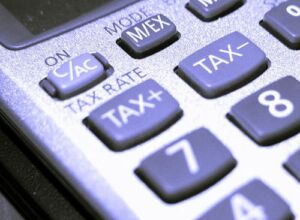News
SKAT seeking to further cut annual tax arrears
This article is more than 10 years old.
‘Tax in Balance’ scheme encourages Danes to pay more in advance tax to avoid any ‘surprise’ outstanding payments

“Tax should be easier and more manageable,” said SKAT (photo: Phillip Ingham)
Following a reduction in outstanding arrears payments for the 2014 tax year, SKAT will this May ask a further 300,000-plus Danish taxpayers if they want to hedge their bets and pay a little extra every month.
The idea is simple: SKAT wants Danes to pay more in advance tax to avoid any ‘surprise’ outstanding payments at the end of the tax year.
The primary purpose of SKAT’s ‘Tax in Balance’ scheme is to ensure that the taxpayer’s preliminary assessment (‘Forskudsopgørelse’) reflects the expected income for the current income/tax year.
It is aimed at assisting citizens by showing where changes in their economic and work conditions can affect their final tax payments.
More manageable taxes
“It should be easier and more manageable for Danes to pay the proper taxes on time,” explained Richard Hanlov, a vice president of SKAT, to TV2.
“The ‘Tax in Balance’ scheme uses SKAT’s existing knowledge of taxpayers to propose a new preliminary income before taxes become out of balance. So far, we can see that the proposals for new advances have had a really positive effect on residual taxes in the last few years, and we hope this will continue.”
Fewer pay outstanding taxes
Last year, ‘Tax in Balance’ reduced the number of Danes with outstanding tax from 1.4 million in 2013 to 975,000 in 2014.
At the same time, the total amount that these taxpayers would have to pay in outstanding tax decreased from 6 billion kroner in 2013 to 4.7 billion kroner in 2014.
Although a proposal to pay more tax may not sound like the most welcome message to receive, statistics show the vast majority of Danes are happy to adjust their tax rates in order to avoid the residue.
“Over the last few years, we have seen approximately 80 percent of Danes accept the changes SKAT suggested,” revealed Hanlov.
“This has meant that far fewer – in fact, just over 400,000 people – have needed to pay outstanding tax for 2014, and it is likely that a very large part of this reduction is due to the new advance statements from SKAT. It is certainly a service that people tend to appreciate.”










































